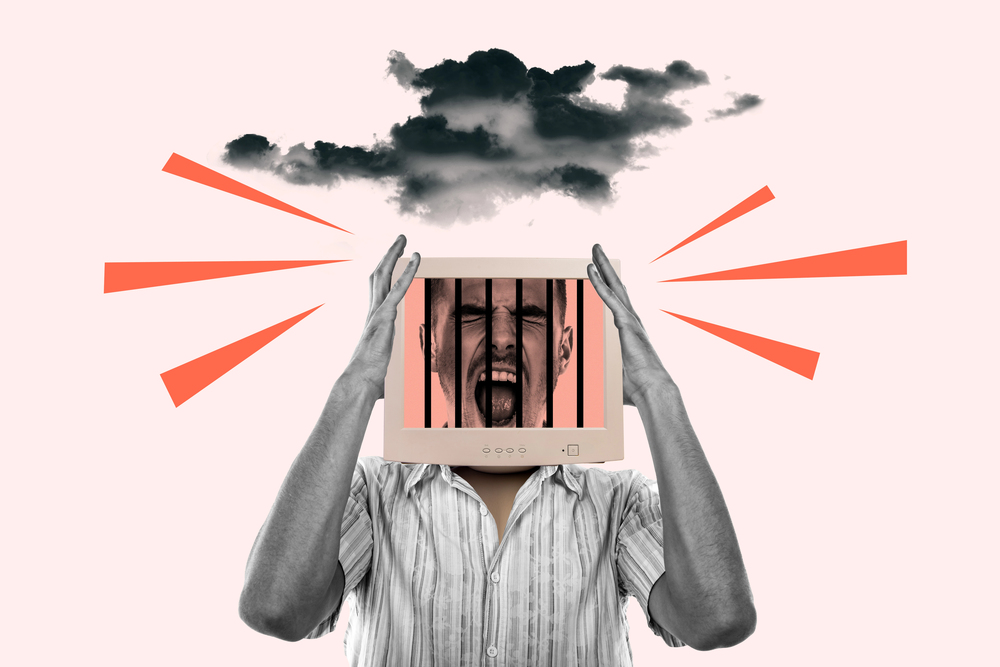A new study published in BMC Psychiatry sheds light on the deep ambivalence among mental health professionals regarding the use of involuntary psychiatric hospitalization. Though many clinicians advocate for community-based, recovery-oriented approaches, most still regard coercive admission as a necessary intervention, especially in systems that lack alternatives.
The research, conducted in Athens, Greece, examines how structural limitations, trust in psychiatry, and persistent stigma influence provider attitudes toward compulsory care, highlighting a disparity between professional ideals and entrenched practices.
“The findings demonstrate that mental health providers display complex, if not ambivalent, attitudes towards involuntary admissions,” the authors write. “On the one hand, they consider it beneficial for the patient and to exert a positive impact on the course of illness; hence, acceptance of the measure. On the other hand, most of the respondents have a clear community mental health care orientation, as they opt for people with SMI to be treated in the community. Moreover, they agree with the view that compulsory admission should be the last therapeutic resort… Therefore, for the majority of professionals, compulsory admission is a necessary evil.”
The study, led by Lily Evangelia Peppou of Panteion University of Social & Political Sciences, utilized an ecological framework to examine provider attitudes across multiple levels. At the macro level, researchers considered legal and social factors, including public stigma and national mental health laws. At the meso level, they assessed how the availability and structure of services shaped clinical decision-making. And at the micro level, they explored individual provider beliefs, demographics, and the dynamics of their working environments.
















No one has commented on this blog in a couple days, so I’ll pose the question again, aside from wanting to maintain undeserved power they do NOT deserve, why do “Mental Health Workers Say They Want Recovery-Oriented Care?” And “Still Endorse Involuntary Treatment?”
Report comment
It’s really rough out there as a community based mental health worker. I worked in homeless services for several years, and I did just assume that psychiatry was fine, benevolent, helpful, etc. One of the reasons I endorsed involuntary commitment ( I don’t anymore, but I used to) is I worked with a lot of people who just could not function in society, and there are not community programs to help them function. There’s hardly any supportive housing or any kind of staffed housing for people who are in the mental health system. In the U.S., where I worked, in a county outside a major east coast city, there were only two community based housing options for people with mental illness. They were really hard to get into, hardly ever had openings, and would routinely deny the people I referred for things like, oh it says here they drink or do drugs occasionally, they need to go through rehab and be sober for 6+ months before we accept them or oh, it says here he threatened someone once, we can’t take people with violent histories. So then you’re supposed to find them a regular apartment maybe with a government subsidy. But 95% of landlords don’t want to take subsidies, and legally are perfectly within their rights to refuse them.
So you’re fighting everyone else in the county with a subsidy over the tiny selection of landlords that take them. And occasionally we’d manage to get someone who just cannot live in an apartment, say, a very unstable man with a history of psychosis, criminality, violence, etc, into an apartment. If we’re lucky, we get him an ‘ACT team’- assertive community treatment. Literally the only thing you can count on an ACT team to do is track down the person every day to- you guessed it-make sure he takes his psych meds. They don’t even go into the apartment, just open the door, here’s your meds, I’m watching you swallow the pills, ok bye. So I’ve had people with literal giant rotting piles of trash in their apartment while ACT team staff are just stopping by and ‘here’s your meds- bye’. And then the landlord finds out and yep- they get evicted. Or, even on the psych meds, they still get into fights with people. Yelling at neighbors, landlord, etc- evicted. So if you’re a worker whose job it is to help people like this, you start to see involuntary commitment as something they need, especially because it’s the only way to get into stable supportive mental health housing programs – crisis residential or what used to be called state hospital- because the hospital social workers and psychiatrists are the ones who can get them into these programs. Because these people aren’t safe in the community- to themselves or others. It’s not the psychiatric treatment that I was endorsing, really, for the involuntary commitment. It was the only way to get a roof over their head and something resembling stability and intense staffing and rules. I guess the ethical conundrum I was facing was my literal job was to keep people stable, housed, and safe. But in our current system some people just can’t or won’t remain stable, housed, or safe. The lack of housing and comprehensive supports are a big issue. Some people will just trash their apartments and get kicked out of housing programs every time. In a way, with the high degree of freedom they have, they always end up ‘choosing’ homelessness. In my one job, I was supposed to keep working with someone for 9 months after they are housed, to ensure they are working towards keeping housing stability. They wouldn’t return my calls or answer the door when I knocked. I would offer to drive them to the bank to write a check for their rent- they would refuse, or make excuses, say they’re busy or feel sick. The landlord would evict them for not paying rent. I’m not saying the answer is involuntary commitment, but I hope you can see why at the time, deep in the trenches of this madness, I was clinging to it as one of the only paths out of homelessness for many of my people.
Report comment
A complex web of deceit, perhaps.
Report comment